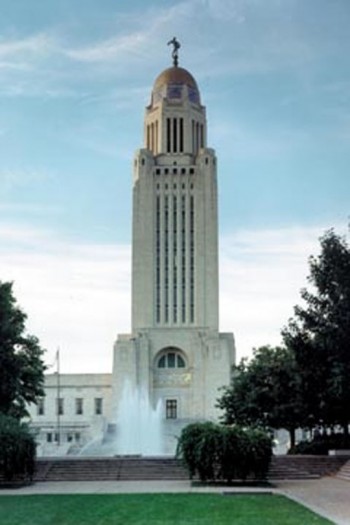Home » News » 2024 » July
News Brief
July 29, 2024Lincoln, Neb. |
By: AP
Nebraska Legislature convenes for a special session to ease property taxes, but with no solid plan

LINCOLN, Neb. (AP) — Nebraska lawmakers have convened for a special legislative session called by Republican Gov. Jim Pillen with a directive to slash soaring property taxes in half, but no concrete answers on whether the Legislature will be able to agree on how to do that.
Convivial lawmakers showed up Thursday for the start of the special session, greeting each other warmly with hugs and smiles. But the congeniality belied a brewing storm of clashing proposals and ideologies on how to best approach Pillen’s plan to slash property taxes in half. One thing most agree on is that there aren’t currently the 33 votes needed for the governor’s plan to pass.
Sen. Danielle Conrad, a Democrat from Lincoln in the officially nonpartisan, one-chamber Nebraska Legislature, said she has gotten a clear consensus from her 48 colleagues.
“The governor’s plan is dead on arrival. So the Legislature needs to quickly pivot to other ideas that can provide relief for Nebraskans that are realistic, responsible and reasonable,” she said.
Pillen promised to call the special session after lawmakers were unable to agree on Pillen’s less ambitious proposal during the regular session earlier this year to cut property taxes by 40%. Pillen’s newest plan would vastly expand the number of goods and services subject to new taxes, including candy, soda, cigarettes, alcohol and CBD products, and to services like pet grooming, veterinary care and auto repairs. Most groceries and medicine would remain exempt.
Another portion of the plan would see the state foot the estimated $2.6 billion cost of operating K-12 public schools, which are now largely funded through local property taxes. It would also set a hard cap on what local governments can collect in property taxes — a plan widely opposed by city leaders.
Most special sessions last a week or two, but the latest one could run through Labor Day, some lawmakers have said. Lawmakers have three days to introduce bills in the special session before quickly moving to public committee hearings on each bill advanced by the Referencing Committee. Lawmakers will then debate the ones that advance out of committee.
A glut of proposals are expected. More than two dozen were introduced on Thursday, and the legislative bill office has told lawmakers that 80 to 90 bills have already been submitted.
They range from those introduced on behalf of the governor, which total more than 300 pages, to ones that target expensive purchases or expand and tax sports betting. One bill would claw back more than $500 million allocated last year to build an unfinished 1894 canal and reservoir system in southwestern Nebraska. Another would impose a 2.25% to 3.7% luxury tax on expensive vehicles and jewelry.
Yet another would ask voters to approve a so-called consumption tax that would eliminate property, income and inheritance taxes and implement at least a 7.5% tax on nearly every purchase. The bill mirrors a petition effort this year that failed to gather enough signatures from the public to get on the November ballot.
Conrad plans to introduce at least two bills including one that would increase taxes on out-of-state corporations and “absentee landlords” who own real estate in Nebraska. She would use that money to expand homestead exemption breaks for those being priced out of their homes by skyrocketing property taxes. Her second bill would assess additional taxes on households that bring in more than $1 million in annual income.
But she also plans to use her time during the session to try to derail those massive tax expansion and appropriations-juggling bills endorsed by Pillen. She introduced amendments to scrap or postpone all three bills as soon as they were introduced.
“The governor has attempted to hide the ball through the whole process,” Conrad said, dismissing his bills as “hundreds and hundreds of pages that take up rewriting the budget, rewriting the tax code and rewriting aspects of school funding in a short, compressed special session. That is just not a recipe for success.”
![]()






